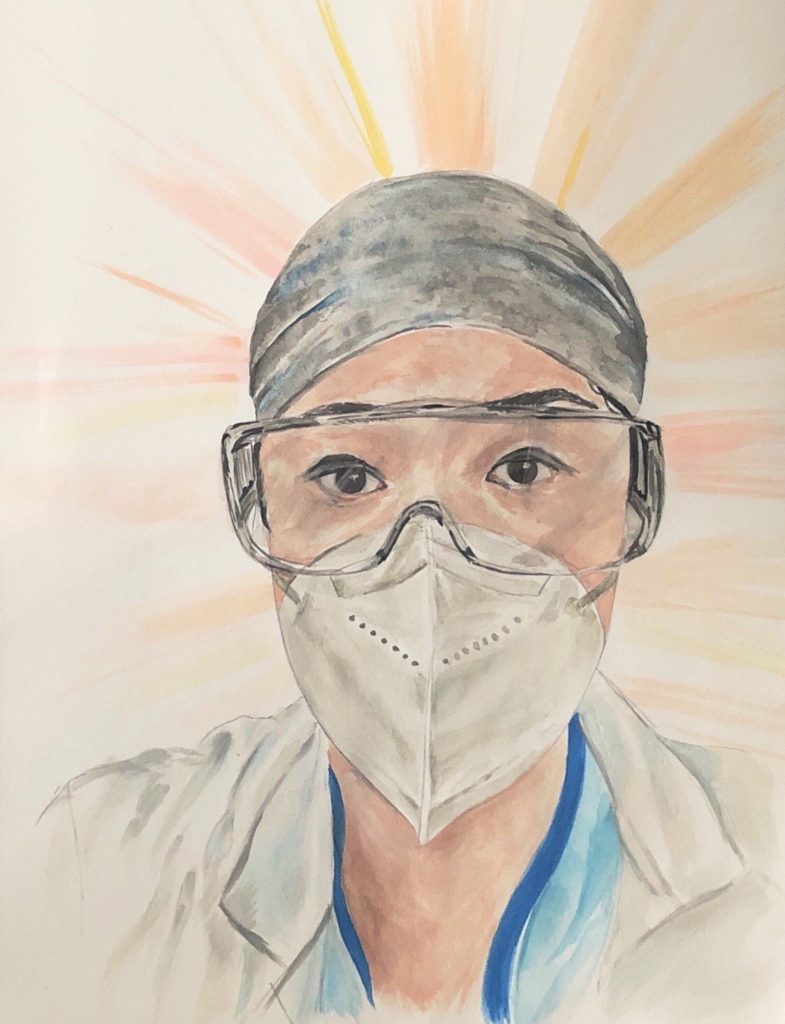
As the governor of New York begins to reopen the state, healthcare workers continue to care for those in need. Frontline workers are not only committed to helping lives directly to serve the community but also risking potential exposure to the disease. Ms. Mun is an imaging technologist who performs computed tomography (CT) at a hospital in New York.
Ms. Mun works in the emergency operating room and does CT, which allows a computer to scan and control X-rays, process the data, and produce an image.
Recently, she has observed an increased demand for COVID-19 patients who need chest X-rays. She said, “The ER is usually occupied with many trauma patients or ill senior patients, but most patients in [the] ER nowadays are COVID-19 patients. All the floors have been filled with COVID-19 patients within a few weeks.”
As Ms. Mun and her co-workers risk exposure to the virus every day, she shared concerns about the safety of herself and her family. “I need to deal with a lot of stress from work because I don’t want to bring that virus to my home or myself. There has been a shortage of Personal Protective Equipment (PPE).” The lack of protective equipment has caused her to reuse N95 masks, which should be discarded after a single-use. She has even taken additional precautions at home, including the use of disinfectant spray and wipes, as well as the preparation of hand sanitizers, masks, and gloves whenever she is outside.
Sarene Mun, Ms. Mun’s daughter, expressed, “As a family member of a frontline worker… to begin with, I can’t tell you how frustrated I got when I saw people… buying every single mask they could… People, who were our lifesavers, were without masks. I find it upsetting that so many frontline workers had to buy their own PPE and that in other states, they even resorted to wearing trash bags.”
Ms. Mun has suffered through the deaths of those around her. “It was too hard to see so many patients dying every day because of coronavirus. So many co-workers around me are also sick from coronavirus. Some of them are dying too,” she shared.
At home, Sarene and her family have been making an effort to be more kind and to help out more in the family. “My sister, dad, and I all put in a lot more of our weight to support my mom when she went to work, like making her breakfast and dinner, cleaning the house for her, being generally nice and gentle with her since she is definitely and understandably sensitive.”
During this time, Sarene has taken a lot of time to reflect on both herself and her relationships with others. “If anything, my mom’s situation is what caused the rest of the family to stick together even more than ever… But during this time, I feel like we were able to patch up a lot of our relationship. She’s home more often, she’s tired, I’m more willing to try and understand her. I’m glad that throughout all of this… I’ve been able to come to terms with my own faults, put aside our differences, and… care for her.”
After the pandemic, Sarene hopes people acknowledge and pay their respects to the millions of individuals that have died. “We must remember that this should never be something to joke about. I have friends whose grandparents passed away either due to COVID-19 or without getting to see their family members one more time. And my mom is at a huge risk too, she’d go to a cramped hospital with tons of sick strangers, sick coworkers… I’m just glad that she’s still with us and healthy,” she said.
Ms. Mun’s experience with COVID-19 has taught her to appreciate everyday activities. “Our normal activities like going to schools, going to work, playing in the parks, eating at restaurants with family were very thankful routines. We cannot currently visit our relatives’ home or meet with friends, so we need to take care of each other when we have a chance,” she said. She also emphasized the importance of good hygiene, especially after the pandemic. She added, “We have great technology and medical systems in modern society, but we are still not perfect to fight with nature. The number one thing people need to remember is to wash their hands frequently.”
“The next thing I hope people remember is that despite everything, we’ve persevered. A lot of us have created support groups through social media, we’ve been able to bond with family since we basically had no choice not to, we’ve been strong. If we were able to make it through this time, we certainly can next time,” Sarene concluded.
Art by Veronica Kuzma, Art Editor



























